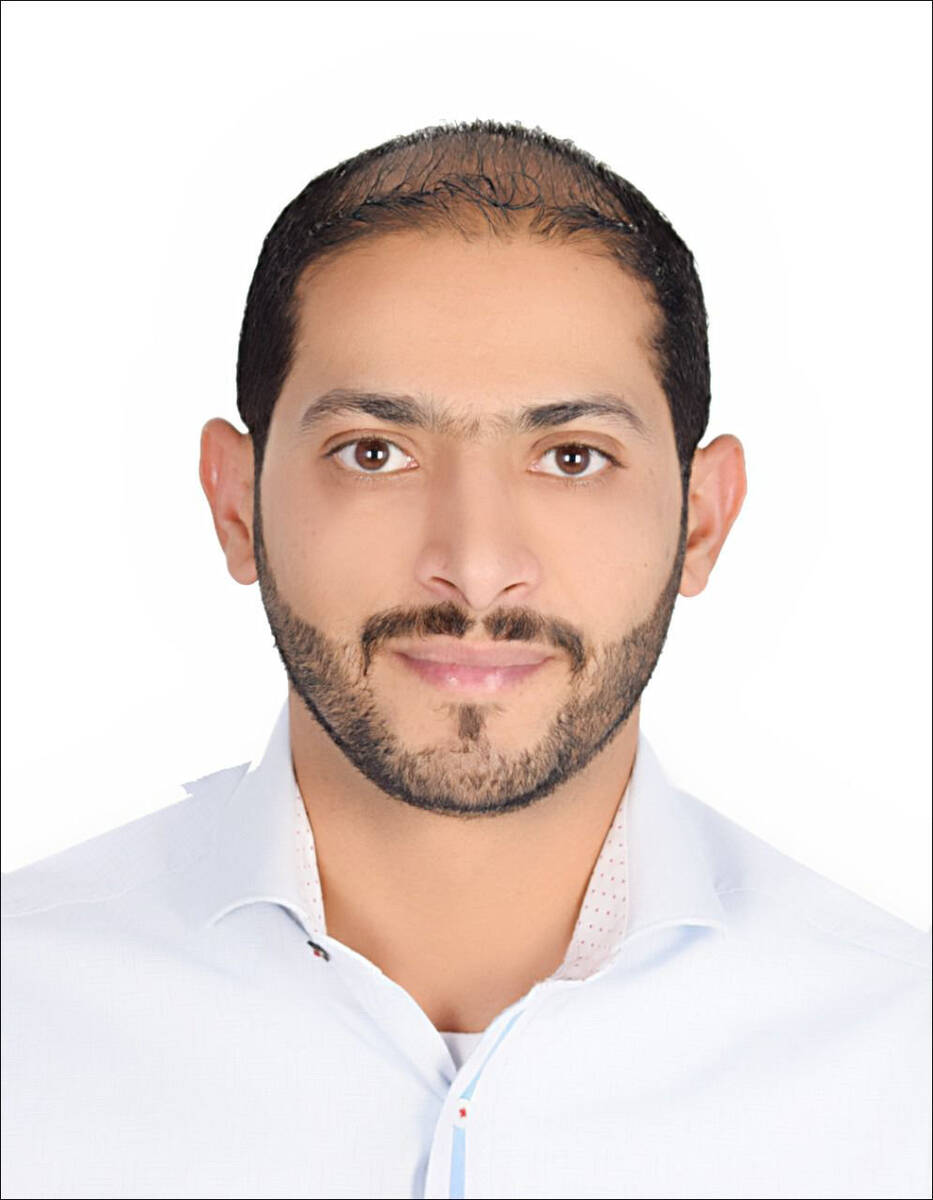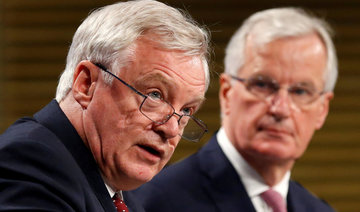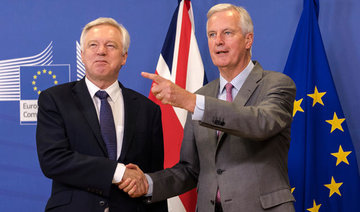LONDON/DUBLIN: “I’m here to send you the regards of the Federal Chancellor. I am entitled to tell you we want you in Germany.” This private message from Angela Merkel, delivered by a regional politician to Wall Street bankers last year, is having the desired effect.
Frankfurt, along with Dublin, is emerging on top in the battle to draw highly-paid banking jobs — and the tax revenue that they bring — away from London before Britain’s departure from the European Union in March 2019.
Germany has favored a subtle approach, with Chancellor Merkel saying little if anything in public on what is a sensitive issue at home. Instead she relied on Volker Bouffier, prime minister of the state of Hesse where Frankfurt is located, to take her invitation to New York in November, according to three sources familiar with the discussions.
Irish leaders have been less reticent, but both countries have sent the same welcoming message to US, Japanese and other foreign banks — despite the public unpopularity of bankers that still lingers after the global financial crisis.
While Paris and Amsterdam are set to lure one or two major lenders, Germany and Ireland have so far secured the bulk of commitments from big-name banks.
Even then, the work of lobbyists is not over: they are pushing to host the huge business of clearing deals in euro-denominated securities, now dominated by the British capital.
Banks have been undertaking legal, financial and economic analysis in choosing new bases for their EU business if it can no longer be done from London. But they also need to know the political climate will be favorable.
“Bankers want reassurance that the government wants them,” one senior banking executive told Reuters. “Business does care about political sentiment toward them. There’s a reason: if there are problems you know that government will use its powers to help you.”
The largest global banks in London have indicated that about 9,600 jobs could go to the continent or Ireland in the next two years, though few have yet moved, according to public statements and information from industry sources.
In recent weeks Morgan Stanley, Citi and Bank of America as well as Japan’s Nomura, Mizuho and Sumitomo Mitsui have announced decisions for new EU headquarters, all opting for Frankfurt or Dublin.
These cities’ success follows year-long campaigns, as government agencies and lobby groups staged a charm offensive with the banks unseen since the 2007-09 crisis.
Merkel, who is seeking re-election next month, left city and Hesse officials to do the rounds in New York. That included the one-on-one meetings with senior executives on Wall Street when Bouffier passed on her message.
German taxpayers had to fund a series of bank bailouts during the crisis, and the bad memories remain due to Deutsche Bank. While Germany’s biggest bank did not needed rescuing, it has run up a litigation bill of €15 billion since 2009 due to extravagant market bets and misconduct.
Local officials have had fewer inhibitions than the national politicians. The Frankfurt Main Finance lobby group went on more than 50 trips to foreign banks’ home bases in the past year. “We’ve had indications that two thirds of the major banks’ moves will be to Frankfurt,” lead campaigner Hubertus Vaeth said.
Morgan Stanley, Citi and JPMorgan say Frankfurt will be their EU trading base after Brexit. However, Vaeth said: “The strategy was to be subtle. There was no glee or triumphalism.”
As a medium-sized provincial city, Frankfurt has also been proclaiming its cultural attractions. That involved taking Wall Street firms to the city’s English-language theater and Japanese bankers to see the Eintracht Frankfurt soccer team play.
Ireland has adopted similar sporting tactics. When Dublin hosted an American Football game between Boston College and Georgia Tech last year, government ministers worked the room at a dinner of 500 executives from Boston and Atlanta, including State Street CEO Jay Hooley.
The Irish political welcome has been more evident.
New Prime Minister Leo Varadkar, building on work by his predecessor Enda Kenny, has met several bank bosses and posted a picture on his website of him smiling with Bank of America CEO Brian Moynihan.
Politicians posing with bankers had been close to anathema since a collapse of the Irish financial system forced the country to take an international bailout in 2010, bringing austerity policies which hurt voters badly.
Frankfurt and Dublin make bankers feel wanted in battle for Brexit jobs
Frankfurt and Dublin make bankers feel wanted in battle for Brexit jobs

Mapping Saudi soils to grow better crops

- Palm trees, root crops, and coastal plants reveal the land’s story
RIYADH: Saudi Arabia’s land tells stories written beneath the feet. From fertile plains and rugged highlands to vast deserts, the Kingdom’s diverse landscapes shape what can grow, where it grows, and how agriculture can thrive.
Alongside geography and climate, soil conditions play a decisive role in agricultural success. Understanding soil types across the Kingdom helps determine which crops can flourish and what interventions may be needed to sustain them.
In an interview with Arab News, Turki Almutairi, a senior environmental specialist at the National Afforestation Center under the National Center for Vegetation Cover Development and Combating Desertification, outlined the main soil types found across Saudi Arabia.

“The dominant soil in the Kingdom are sandy desert soils, alongside calcareous soils in the central region. Rocky and stony soils are present along mountainous and hilly landscapes,” he said.
“Alluvial soils are common in wadies (valleys), while saline and sodic soils are located in depressions (Sabkhas) and along coastlines. Pockets of clayed soils can be also found around few sites along the Kingdom.”
The Kingdom’s vast territory gives rise to unique soil characteristics in each region, enabling different crops to grow depending on local conditions.
“Soil is the growing medium for plants. The role of soil includes structural stabilization, providing nutrients and a communication medium for plants,” Basil Nasir, soil lead at engineering consultancy William Sale Partnership, told Arab News.

According to Nasir, assessing soil use is essential before determining whether it is fertile or infertile, as different soils support different plant types.
“The soil used for trees differs from the soil used for ornamental plants and from the soil used for aquatic plants. It varies according to the specific needs of each plant, and based on this, we determine what the soil requires and assess its fertility,” he said.
Nasir explained that soil characteristics are shaped by both physical and chemical components. In addition to water and air, mineral particles such as sand, silt and clay are key indicators of soil health. Organic matter, derived from plant and animal remains, forms the fourth major component.
The balance between these elements determines soil behavior. One important physical trait is water-holding capacity, which influences what types of plants a soil can support.
Opinion
This section contains relevant reference points, placed in (Opinion field)
“If the soil is like dunes, adding water will cause it to run off, but if the soil is clay, its ability to retain water will be very high. If you add water and return the next day, you will find that the water is still there,” said Nasir.
Chemical properties, such as whether soil is alkaline or acidic, are equally important. Understanding both physical and chemical traits allows for proper assessment and treatment when needed.
“What determines whether a plant is suitable for a particular environment is primarily the plant's nature. For example, some plants have fibrous roots and therefore do not require well-draining soil,” Nasir added.
“A palm tree, for example, does not care whether it was planted in one soil or the other because its roots are fibrous. Therefore, palm trees are strong plants and are suitable to grow in both dry and wetlands, while preferring sandy areas.”

Crops such as potatoes, onions, carrots and beetroots — where the edible part grows underground — typically thrive in sandy soils. As a result, plantations of these crops are commonly found in northern regions such as Hail and in Wadi Ad-Dawasir.
In the eastern region, including Al-Ahsa, wetlands are more common due to climatic conditions. Growing plants in such environments often requires human intervention.
“Plants that are coastal or could be found in lagoons or lakes must have some sort of soil around them, like lotus flowers and mangrove trees.”
“An important parameter to keep in mind is that there is no air in its soil, and they are adapted to this condition. However, the lack of air, along with the presence of organic matter, will create a situation where anaerobic bacteria react with the soil, potentially causing diseases we can easily avoid,” said Nasir.
He emphasized that removing organic matter from such soils is essential to ensure plant survival in aquatic environments.
Mountainous and rocky regions in Saudi Arabia are generally volcanic, resulting in low water-holding capacity and challenging growing conditions. However, volcanic ash contributes to high fertility, allowing certain crops to flourish.
As a result, western regions support tree crops such as coffee, mangoes, some banana varieties and pomegranates.

As development accelerates across the Kingdom, soil improvement efforts are expanding under the National Greening Program.
“Soil is considered fundamental for the National Greening Program’s objectives. Understanding the soil variability along the Kingdom is a precondition for fostering sustainable soil management,” Almutairi told Arab News.
Adding, “In this line, the NGP is working towards the establishment of the Saudi Soil Information System (TURBA-KSA), which consists of mapping soils and its functional properties in the Kingdom using state-of-the-art technology.”
He also noted the creation of the “Land Rehabilitation Watch” to report, verify and monitor land rehabilitation nationwide.
“This milestone allows the Kingdom to understand how soil and land health are progressing against national and international targets of land degradation neutrality. Documenting good soil and land management practices is also important, so that those successful practices could be scaled up along the Kingdom, which is a priority task for NGP,” he said.
Raising public awareness is another key pillar of the program.
“Assessing different emerging technologies and soil amendments is a daily activity of NGP, as it then provides technical support to partners on the selection and application of these technologies.”
DID YOU KNOW?
• Saudi Arabia cultivates around 1 million hectares, mainly in Riyadh, Qassim, Hail, and Jouf.
• Farming follows the seasons: winter brings onions, garlic, and carrots, while summer yields watermelon, tomatoes, and cucumbers.
• The Kingdom is a top date producer, with over 31 million palm trees generating nearly 1.54 million tons, especially in Riyadh and Qassim.
Almutairi stressed that soil is often overlooked because it lies unseen beneath the surface, despite its critical role.
Yet soil produces 95 percent of food, stores water, holds more carbon than vegetation and the atmosphere, suppresses contaminants, regulates water, carbon and nutrient cycles, and hosts microorganisms linked to the human microbiome.
He emphasized the need to engage the general public, particularly urban communities disconnected from nature. Education helps people understand where food comes from and how contact with soil — such as walking barefoot — can support well-being. Healthy soils also contribute to cleaner water and air, he added.
Almutairi also called for stronger advocacy among decision-makers, noting that investment in healthy soils supports climate action, food security and sustainable development.
He concluded that key strategies include officially observing UN World Soil Day on Dec. 5, integrating soil education into curricula, launching annual social media campaigns, using art to raise awareness, and organizing public events that connect soils to everyday life.















